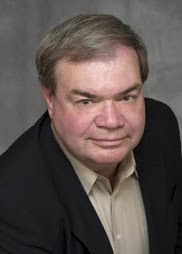IN December 2008, Georgette Kaplan and her two daughters, Stephanie and
Jamie, felt as if they were receiving a wonderful holiday gift.
Products from their personal-care company, Ms. &
Mrs., were going to be showcased on “The View,” the ABC talk show, as part of
its seasonal gift guide. Giddy with anticipation, the women huddled around a
television in their Chicago office on the day of the broadcast as heavy snow
fell outside.
Then it happened: their company, which makes cleverly
packaged items like the Shemergency Kit, a brightly colored pouch containing
breath freshener, earring backs, blotting tissues and other “emergency
essentials” — was misidentified as Mr. & Mrs. on national television.
“It was kind of like, ‘Ugh,’ ” said Stephanie Kaplan,
the company’s creative director. “It was one of those moments when you realize,
‘Wow, this is really a problem.’ ”
Indeed. The company’s name has been so serially
mispronounced since mother and daughters came up with it in 2003 that they were
recently able to assemble enough material for a blooper reel. So, last month,
the Kaplans rebaptized Ms. & Mrs. as
Pinch Provisions.
There are various reasons to rename a business. Beyond
making the name easier to pronounce, they include new ownership or a desire to
rejuvenate a brand or to do away with negative associations.
The private security contractor Blackwater Worldwide,
for instance, has changed its name twice in the last three years. After five
Blackwater guards were indicted in 2008 on manslaughter and weapons charges in
connection with the killing and injuring of unarmed civilians in Iraq, the
company changed its name to Xe Services. (The case was dismissed, but an appeals
court reopened it against four of the guards, and the Justice Department is now
seeking an indictment of them.) In 2010, Xe Services became Academi when it
changed ownership.
Sports news spurred a name change at Pujols 5, a
restaurant outside of St. Louis that was named after the baseball star Albert
Pujols. The name was fine as long as he played for the St. Louis Cardinals, but
last December he joined the Los Angeles Angels.
Immediately after the news was announced, “We started
getting phone calls and cancellations,” said the restaurant’s owner, Patrick
Hanon. Guards were stationed around a statue of Mr. Pujols outside the
restaurant because “People were throwing stuff at it — it was crazy,” Mr. Hanon
said. Sales dropped 75 percent.
In February, Mr. Hanon changed his restaurant’s name
to the St. Louis Sports Hall of Fame Bar and Grill, but that didn’t work,
either. “People thought we were a museum,” he said.
Now, the restaurant is known as Patrick’s Restaurant
& Sports Bar, which is what it was called before it became Pujols 5 in 2006.
Business is back and customers are no longer confused, Mr. Hanon said.
More famous corporate name changes include Datsun to
Nissan; the Computing-Tabulating-Recording Company to the International Business
Machines Corporation, or I.B.M.; and BackRub, the precursor to Google.
Big or small, companies always face the challenge of
telegraphing a new name in a way that doesn’t alienate loyal customers.
Ira Kalb, a
marketing professor at the University of Southern California’s Marshall School
of Business, said the change shouldn’t “destroy all the positive brand equity
that has been built up over years.”
The new name was selected in a brainstorming session
with the design and branding firm
Beardwood&Co., which offered 16
possibilities. The name was catchy and appropriate — bringing to mind the phrase
“in a pinch.” Oh, and it was easy to pronounce.
As a smaller company with limited resources, Pinch
Provisions relied more on creativity than extravagance to announce its new
identity. To explain the motivation for the change, the Kaplans worked with
Delahoyde Projects, a media production company, to assemble footage for
a video that was posted on
YouTube and distributed via e-mail and social media.
“We actually had someone on our staff collect clips of
people mispronouncing our name,” said Stephanie Kaplan. “It was funny, because
once we decided to change the name, we started rooting people on, because we
wanted more material. We’d say, ‘Oh, I hope they mispronounce it, because we
want another clip.’ ”
In addition, a
“Pinch Proof” video showed
a stylish young woman brushing aside headaches, coffee stains and drooping
hemlines — this time to announce the new brand. Behind-the-scenes photographs
from the video appeared on Facebook and Instagram, and blog items on Tumblr
completed the narrative.
Ms. Kaplan says that it’s too early to tell how the
change will affect business, but that she has received a positive response so
far.
Looking ahead, is she confident that a new faux pas on
national TV can be avoided?
Ms. Kaplan laughed. “That actually wasn’t so bad,” she
said. “Right after the mispronunciation, our Web site crashed” because of heavy
traffic. Despite the spoken error, the company’s name was spelled correctly at
the bottom of the screen, allowing viewers to find the Web site.
“It was back up shortly. Up until that day, it was the
biggest day our company ever had.”
Source: NY Times Business Day





